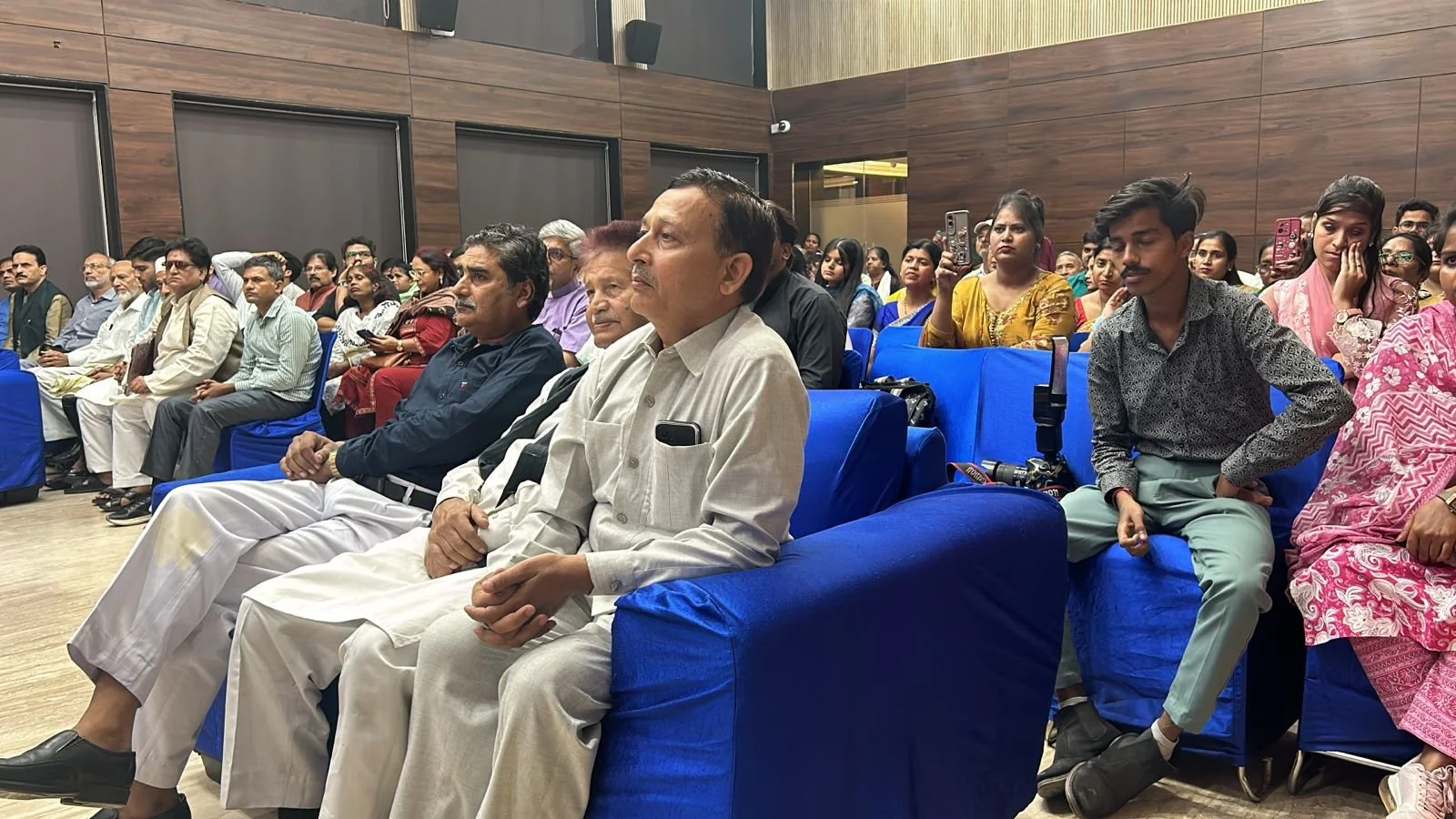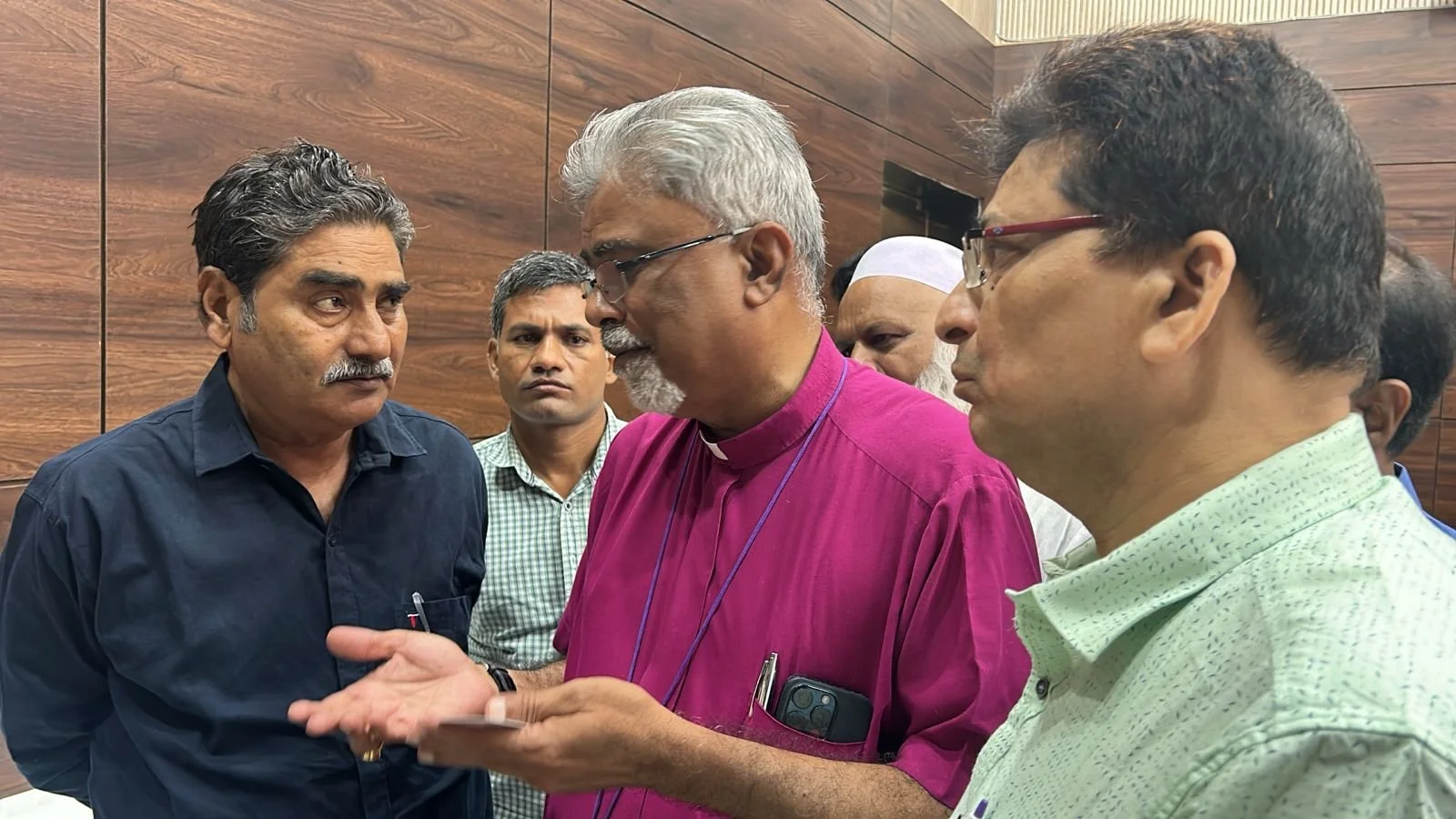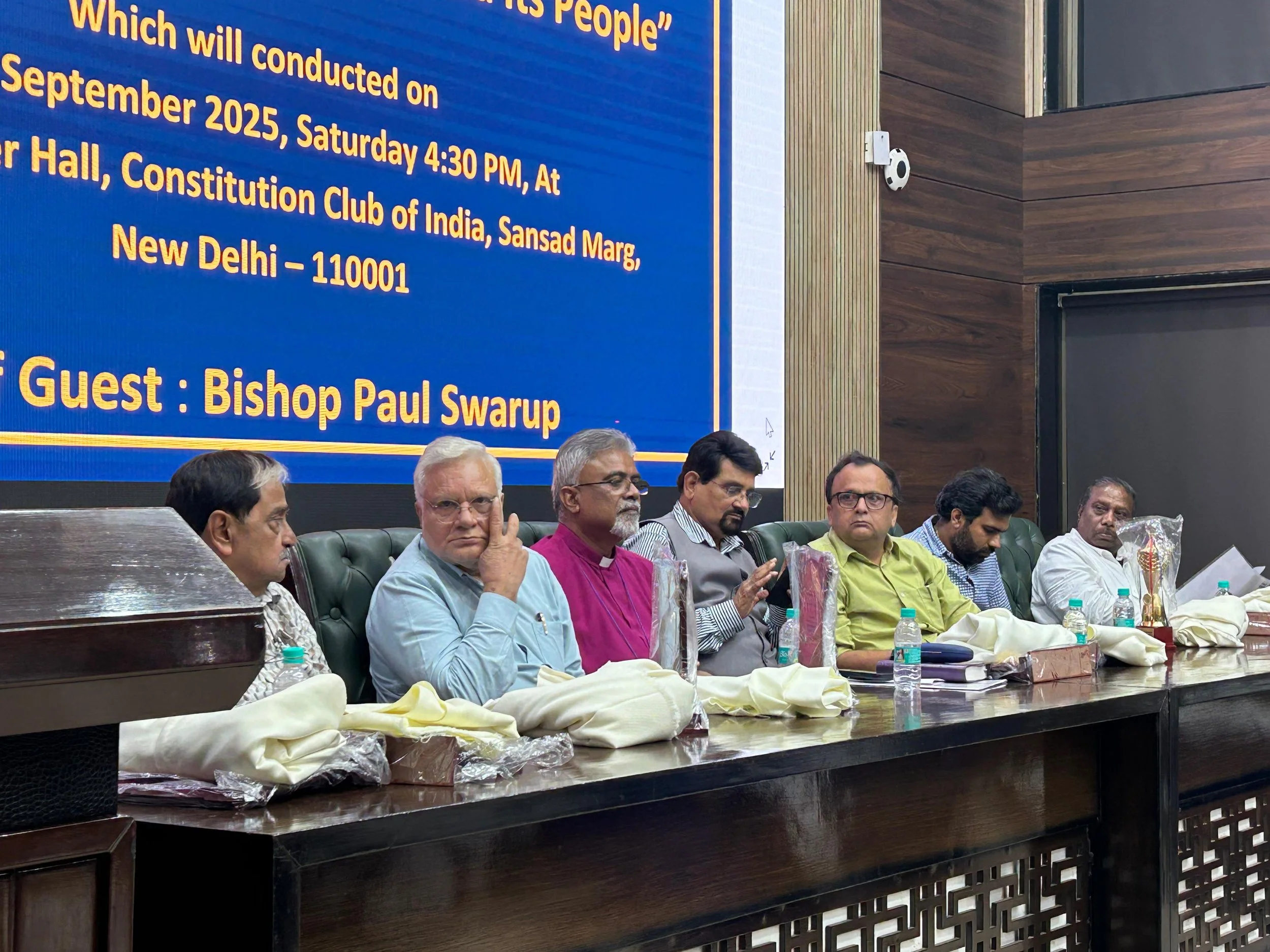Seminar on the Media’s Role in Uniting India and Its People
Organised by the Diocesan Board of Social Services and The Inquilab Daily
New Delhi, 27 September 2025 — A seminar on the Media’s Role in Uniting India and Its People was held at the Deputy Speaker Hall, Constitution Club of India, jointly organised by the Diocesan Board of Social Services (DBSS) and The Inquilab daily newspaper.
The event brought together prominent voices from faith, academia, and journalism to reflect on the media’s responsibility in shaping unity, truth, and justice in Indian society.
The Chief Guest, Bishop Paul Swarup of the Diocese of Delhi (Church of North India), delivered the keynote address, offering a candid perspective on the challenges faced by Christian communities in India and the ethical duty of the media in representing truth without bias.
Bishop Paul Swarup Condemns False Allegations of Conversion
Bishop Paul Swarup strongly denounced the recurring allegations of forced religious conversions against Christians in India, describing them as “baseless and without any evidence.”
He highlighted that the Christian population in India has remained around 2.3–2.5 percent since independence, refuting claims of mass conversions. Despite this, pastors and nuns continue to face harassment, violence, and imprisonment under the guise of anti-conversion laws.
“If these allegations were true,” Bishop Swarup remarked, “our population would not have remained stagnant for over seven decades. These charges are entirely unfounded and contrary to reality.”
He further pointed out that the anti-conversion laws are often misused to persecute innocent Christians, creating fear and division rather than fostering unity and understanding.
Concerns Over Article 341 and Constitutional Discrimination
Drawing attention to Article 341 of the Constitution, Bishop Swarup emphasised the continued injustice faced by Dalit and Scheduled Caste individuals who embrace Christianity.
He explained that a Presidential Order of 1949 denies these individuals the rights and benefits they are otherwise entitled to, a discriminatory clause that remains in force despite decades of judicial review.
“When others renounce Hinduism and adopt Buddhism or Sikhism, they retain their constitutional benefits,” he said. “But Dalits and SC/ST Christians continue to be denied the same rights. This inequality contradicts the very spirit of our Constitution.”
(Paraphrased commentary)
Media’s Duty to the Truth
The seminar also featured a distinguished panel of senior journalists, including Vinod Sharma (Hindustan Times), Vivek Kumar Shukla (Navbharat Times), Saurabh Shukla (NDTV), and Sanjay Tyagi (Dainik Jagran).
The speakers expressed deep concern over the declining standards of journalistic integrity and the increasing trend of biased and flattering reportage. They stressed that media, as the fourth pillar of democracy, must remain independent, courageous, and committed to truth while also amplifying the voices of the marginalized and oppressed.
(Paraphrased commentary) Speakers noted that the role of the media is not to please those in power but to hold them accountable and give voice to those who cannot speak for themselves.
A Call for Ethical Journalism and National Unity
The discussion underscored that media should act as a unifying force in India’s diverse social fabric; promoting dialogue, mutual respect, and harmony rather than division.
Distinguished guests, including Dr. Syed Ahmed Khan, Kashif Nizami, Arshad Faridi, and Maqsood Ahmed, were honoured for their outstanding contributions to their respective fields.
Father Monodeep Daniel delivered the vote of thanks, while the session was conducted by Father Solomon George, Editor of Inquilab Bharat and organiser of the event.
Closing Reflection
The seminar concluded with a renewed call to action for the media, civil society, and faith communities to work together in strengthening India’s unity and moral conscience through truth, compassion, and responsible dialogue.
Issued by:
Diocesan Board of Social Services (DBSS)
Church of North India, Diocese of Delhi



